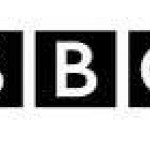- Sektör: Broadcasting & receiving
- Number of terms: 5074
- Number of blossaries: 1
- Company Profile:
The largest broadcasting organisation in the world.
The battle between candidates to get as much advertising on television and radio as possible.
Industry:Government
The larger of the two houses of Congress.
The 435 members of the House - generally known as Congressmen and Congresswomen - serve two-year terms, as compared to the six-year term of senators.
The presiding member, the Speaker of the House, is elected by a majority vote of the members of the House at the beginning of each new Congress.
House members each represent approximately half a million citizens in their "districts". The number of districts per state is determined each decade by a proportional allocation based on the federal census.
Industry:Government
When a candidate has won his or her party's presidential nomination, he or she is then obliged to pick a "running-mate" who would become vice-president if the candidate won the election. The two are then referred to as "the ticket".
Candidates are often advised to pick a running-mate who "balances the ticket" - that is, one whose qualities make up for the candidate's perceived weaknesses.
Industry:Government
The controversial practice where voters are contacted over the telephone by campaign workers, who talk up their own candidate and criticise opponents.
Voters often say they feel deceived by the technique, particularly as a typical call often begins with the kind of questions that a normal, independent survey would ask. Some observers say the technique undermines voter confidence in the electoral system and risks deterring yet more voters from turning out on polling day.
Industry:Government
A primary election (to select a candidate for the general election) in which people are allowed to vote regardless of party affiliation or registration. However, in an open primary, voters are obliged to vote for candidates who all belong to the same political party.
Industry:Government
The constitutional role granted to the president as head of the United States' armed forces.
Under Article III of the Constitution, the president is given authority to lead "the army and the navy of the United States and of the militia of the several states when called into the actual service of the United States. "
No president since James Madison in the War of 1812 has personally led troops into battle.
Industry:Government
A state which, historically, tends to vote for the winning candidate, perhaps because it is - demographically - a microcosm of the country as a whole.
The classic example of a bellwether state is Missouri, which has voted for the winner in every US presidential election since 1904 - except 1956 and 2008.
Industry:Government
The party members whose votes at the National Convention officially determine the two parties' presidential candidates.
Most of the delegates at the convention are obliged to vote for a candidate according to the result of primaries or caucuses in their home state. They are referred to as "pledged" or "elected" delegates.
Some delegates, however, are "unpledged" and are able to vote for any candidate at the convention. In the Democratic Party, unpledged delegates are called "super-delegates".
Industry:Government
A primary election (to select a candidate for a general election) in which voters may ignore party lines. For example, a voter may choose to vote for a Republican senator and a Democratic governor. The Supreme Court has ruled the system unconstitutional. A more common practice is the open primary.
Industry:Government
